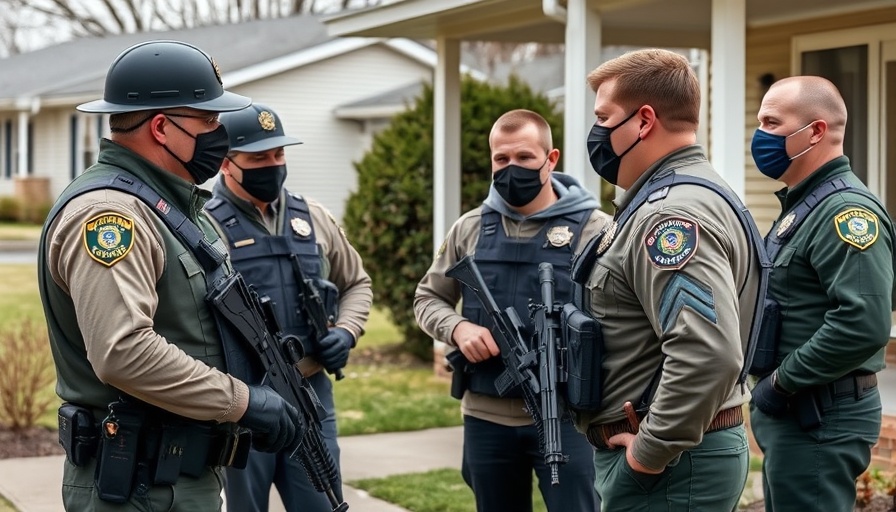
The Awakening: A Heart-Wrenching Rescue
In a harrowing scenario that illustrates the critical role of police welfare checks, a newborn in Phoenix, Arizona, was found "barely clinging on to life" after being left alone for days following the death of their mother. This poignant incident not only brings to light the dire circumstances surrounding vulnerable populations but also highlights the capabilities and responsibilities that lie within law enforcement.
Significance of Community Vigilance
Neighbors, recognizing the alarming absence of both the mother and the infant, took courageous steps to call in the authorities after observing packages piling up outside the residence. This community-led intervention proved vital, as police officers were able to reach the newborn in a critical state of dehydration and malnourishment. Such proactive engagement from residents raises essential questions about community responsibility and the comprehensive mechanisms available for safeguarding at-risk individuals.
The Role of Technology in Modern Policing
The rescue was further aided by the use of police body cameras, a critical tool in contemporary law enforcement practices. These cameras not only provide transparency during police operations but also serve as an auxiliary tool for legal safety. In this instance, they recorded the moment officers forced their way into the residence and located the child, capturing significant evidence of the conditions surrounding the emergency. Innovative crime prevention tools can play a substantial role in enhancing community trust and accountability.
Future Implications for Law Enforcement Policies
This incident sparks an important discourse about the importance of ongoing training in crisis intervention for police officers. Equipping law enforcement personnel with the knowledge and skills to handle sensitive situations—especially those involving children—can lead to better outcomes during times of distress. As public safety demands evolve, so too must the strategies and policies that underpin law enforcement practices.
Supporting Vulnerable Families
This heartbreaking event compels us to examine the existing support systems that are meant to catch families in crisis. Despite the incredible efforts made by police officers, what preventative measures could have been taken before tragedy struck? This scenario fuels the dialogue around resources that families need, including mental health support, social services, and educational outreach—ultimately contributing to a critical overhaul of current policy frameworks.
The Heart of Public Safety: Policing with Compassion
Successfully managing crises such as this one requires officers to bring not only technical capability but also compassion into their work. The act of saving a life goes beyond physical rescue; it extends to understanding the broader social implications and emotional ramifications. Empowering police officers with mental health resources and sustainable practices can enhance officer wellness, which in turn improves police-community relations.
This emotional rescue serves as a stark reminder that each call for help is never just about the immediate situation. The ripple effect of today's actions—be they supportive community actions or the responsiveness of law enforcement to unfortunate circumstances—will reverberate long into the future, shaping the bond between community members and police alike.
Continuing the Conversation: Community Safety Initiatives
In light of this incident, it is crucial to explore how police and community members can work more collaboratively to prevent such tragedies. By engaging in dialogue about police training to handle vulnerable populations, encouraging community vigilance, and advocating for adequate resources, we can collectively foster a safer environment for everyone.
To ensure that the needs of all families are met and that police are equipped to serve effectively, it’s time to take concrete steps toward developing laws, policies, and practices that put the community first. How can you as a citizen help support local initiatives aimed at improving public safety and community engagement?
 Add Row
Add Row  Add
Add 

 Add Element
Add Element 


Write A Comment